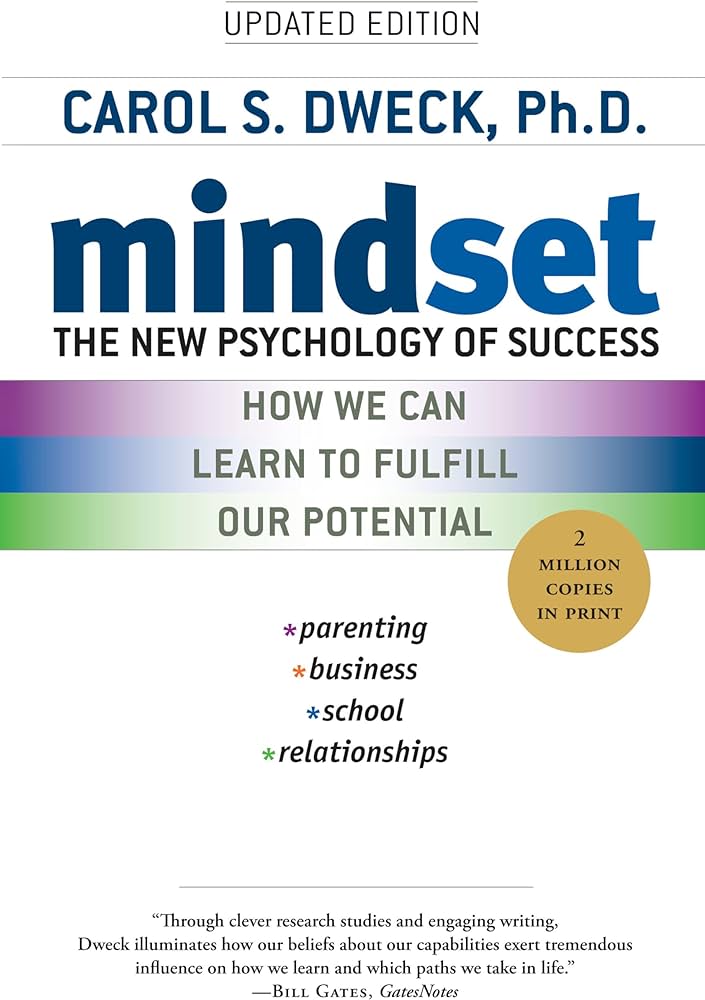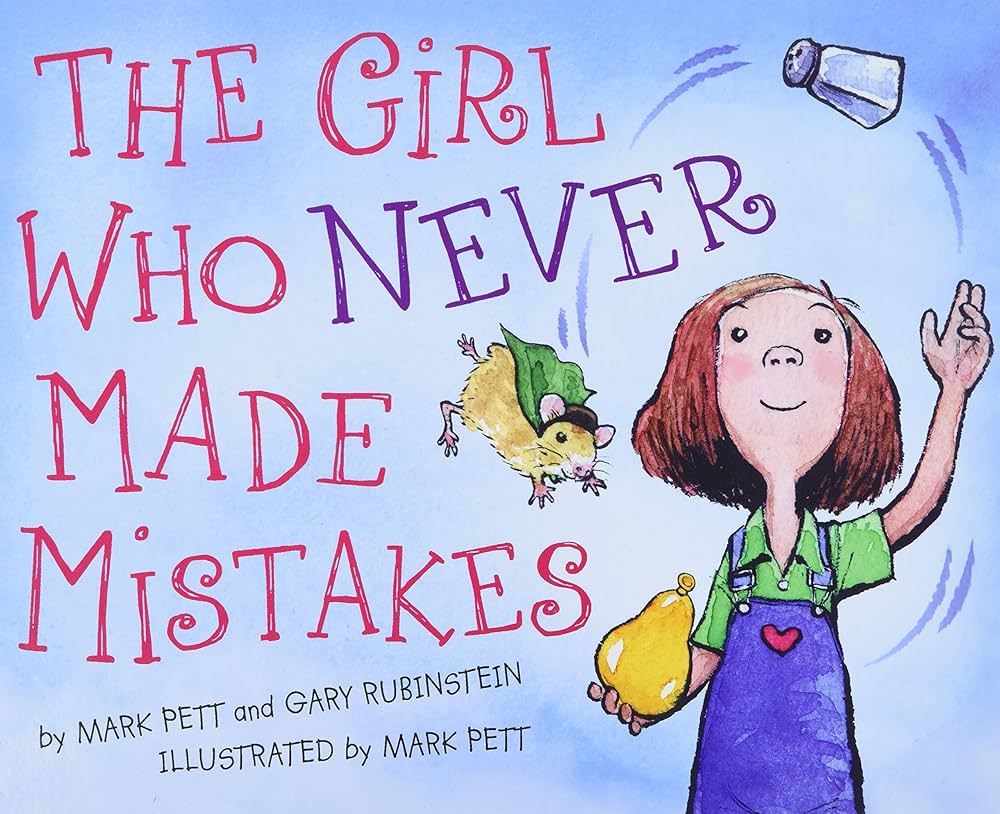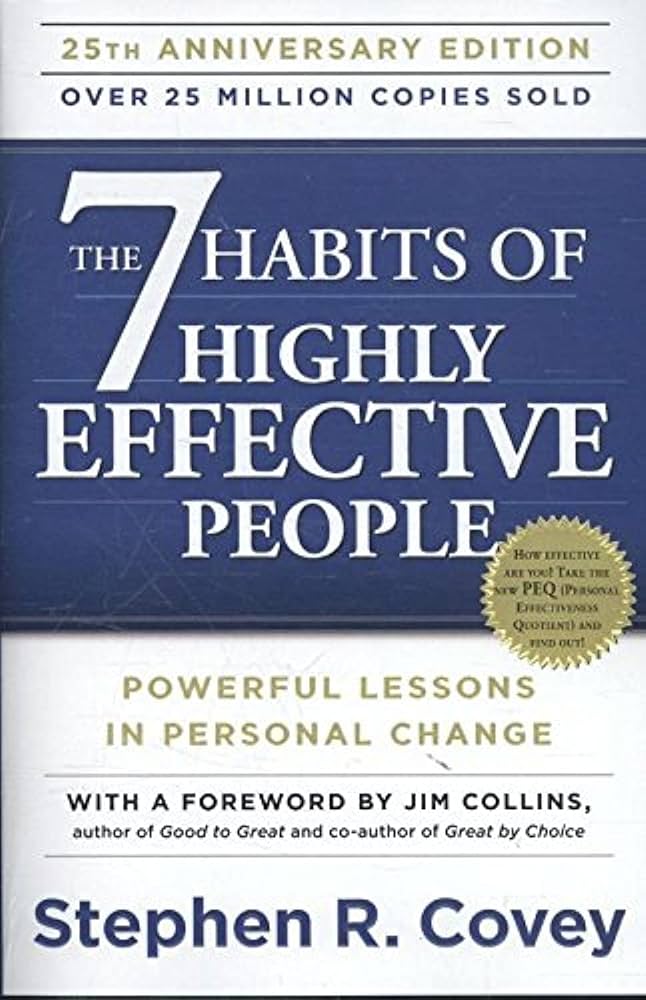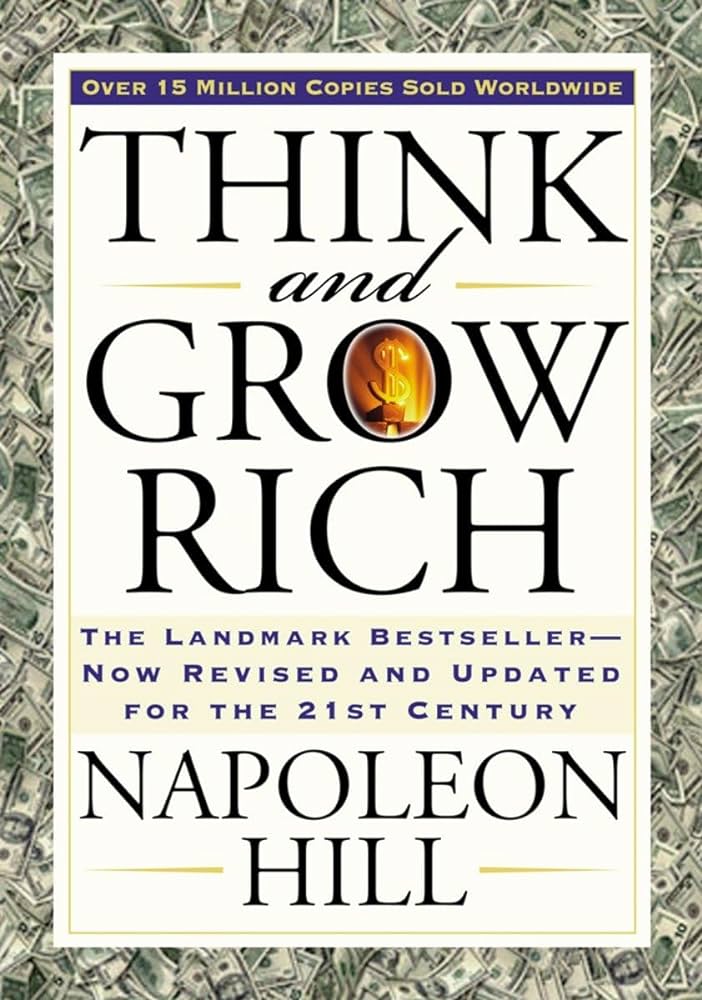Sometimes, all we need is to visualize success. We have everything we need to succeed, but often, we are hesitant. We may have second thoughts or even suffer from imposter syndrome. Having the right mindset is the cure to such obstacles. A growth mindset helps you visualize success long before it’s due. It helps you believe in three magical yet intangible forces: the initiative force, the will to win force, and the force of faith. In this list, we will present you with five books that help us understand what a growth mindset is and how to set your mind for growth, allowing you to begin reaping what you have already visualized.
1. Mindset: The New Psychology of Success by Carol S. Dweck

“Mindset: The New Psychology of Success” by Carol S. Dweck is a book that explores the concept of ‘mindsets’ and how our beliefs about our abilities can impact our success.
Dweck introduces two types of mindsets: the fixed mindset and the growth mindset. People with a fixed mindset believe that their abilities are unchangeable. They tend to avoid challenges and give up easily when faced with obstacles. On the other hand, people with a growth mindset believe that their abilities can be developed through hard work, good strategies, and mentorship. They embrace challenges, persist in the face of setbacks, and see effort as the path to mastery.
The book shows how success in school, work, sports, the arts, and almost every area of human endeavor can be dramatically influenced by how we think about our talents and abilities. Dweck provides insights into her now famous and broadly embraced concept and guides people toward adopting a deeper, truer growth mindset. She also expands the mindset concept beyond the individual, applying it to the cultures of groups and organizations.
In relation to the growth mindset, this book is a valuable resource. It not only defines and explains the growth mindset, but it also offers guidance on how to cultivate this mindset for personal and professional development. It emphasizes the idea that with the right mindset, you can motivate those you lead, teach, and love — to transform their lives and your own.
2. The Girl Who Never Made Mistakes by Mark Pett and Katy Sian

“The Girl Who Never Made Mistakes” by Mark Pett and Gary Rubinstein is a delightful story that introduces us to Beatrice Bottomwell, a nine-year-old girl who has never made a mistake. She never forgets her math homework, she never wears mismatched socks, and she always wins the yearly talent show at school. In fact, Beatrice holds the record of perfection in her hometown, where she is known as The Girl Who Never Makes Mistakes.
However, one day, the inevitable happens: Beatrice makes a huge mistake in front of everyone! This event leads Beatrice to realize that life is more fun when you enjoy everything, even the mistakes. This realization offers a lesson we could all benefit from: learn from your mistakes, let go, laugh, and enjoy the ride.
In relation to the growth mindset, this book is a valuable resource. It teaches children (and adults) that it’s okay to make mistakes and that these mistakes are opportunities for learning and growth. It encourages readers to shift from a perfectionist mindset, which can be limiting, to a growth mindset, which embraces challenges, resilience, and continuous learning. It’s a must-read for anyone looking to understand the growth mindset and its application in real-life situations.
3. Grit: The Power of Passion and Perseverance by Angela Duckworth

“Grit: The Power of Passion and Perseverance” by Angela Duckworth is a groundbreaking work that explores the concept of ‘grit’ – a combination of passion and perseverance, and its powerful impact on achieving success. Duckworth’s research reveals that grit is a stronger predictor of high-achievement than intelligence, talent, and other personality traits.
The book emphasizes that grit is not just about working hard, but about working consistently towards long-term goals. It’s about having an enduring passion and sticking to your journey, even when faced with obstacles or when progress may seem slow or non-existent.
Duckworth’s work is particularly relevant to the concept of a growth mindset. It reinforces the idea that it’s not just our abilities or talent that bring success, but our continuous efforts to improve and the resilience to keep going despite setbacks.
4. The 7 Habits of Highly Effective People: Powerful Lessons in Personal Change by Stephen R. Covey

“The 7 Habits of Highly Effective People: Powerful Lessons in Personal Change” by Stephen R. Covey is a seminal work that has had a profound impact on millions of readers worldwide. The book presents a holistic, integrated, principle-centered approach for solving personal and professional problems.
Covey introduces seven habits that embody a step-by-step pathway for living with fairness, integrity, service, and human dignity. These habits are:
- Be proactive
- Begin with the end in mind
- Put first things first
- Think win/win
- Seek to understand first, before making yourself understood
- Learn to synergize
- Sharpen the saw
These habits are designed to help individuals become more effective by changing their perception and interpretation of how the world works. Covey emphasizes that effectiveness is not just about getting what you want, but it’s about following a path towards your goals that is in harmony with the welfare of others, that is based on ethical considerations and that is cooperative in nature.
In the context of a growth mindset, this book is a valuable resource. It teaches us that our abilities and intelligence can be developed with effort, learning, and persistence, which aligns with the principles of the growth mindset. It encourages us to be proactive, to set clear goals, to prioritize our tasks, and to work effectively with others, all of which require a belief in our ability to grow and improve.
5. Think and Grow Rich by Napoleon Hill

“Think and Grow Rich” by Napoleon Hill is a classic book that has influenced millions of people to improve their lives through the power of positive thinking. The book is based on Hill’s extensive research of more than 500 successful individuals, and it presents 13 principles that contribute to personal success and wealth creation.
The book emphasizes the importance of desire, faith, and persistence in achieving success. It also highlights the role of specialized knowledge, imagination, and organized planning in wealth creation. Hill’s principles are designed to help individuals develop a growth mindset, which is the belief that abilities and intelligence can be developed with effort, learning, and persistence.
While the book does not explicitly discuss the concept of a growth mindset, it aligns with many of its principles. For instance, the book encourages readers to believe in their ability to achieve their goals through persistent effort and a positive attitude. It also promotes the idea of lifelong learning and continuous improvement, which are key aspects of a growth mindset.
The book’s main premise is that our thoughts can influence our reality, and that a positive, goal-oriented mindset can lead to success and wealth. This aligns with the broader principles of a growth mindset, which emphasizes the power of our beliefs in shaping our abilities and outcomes.
